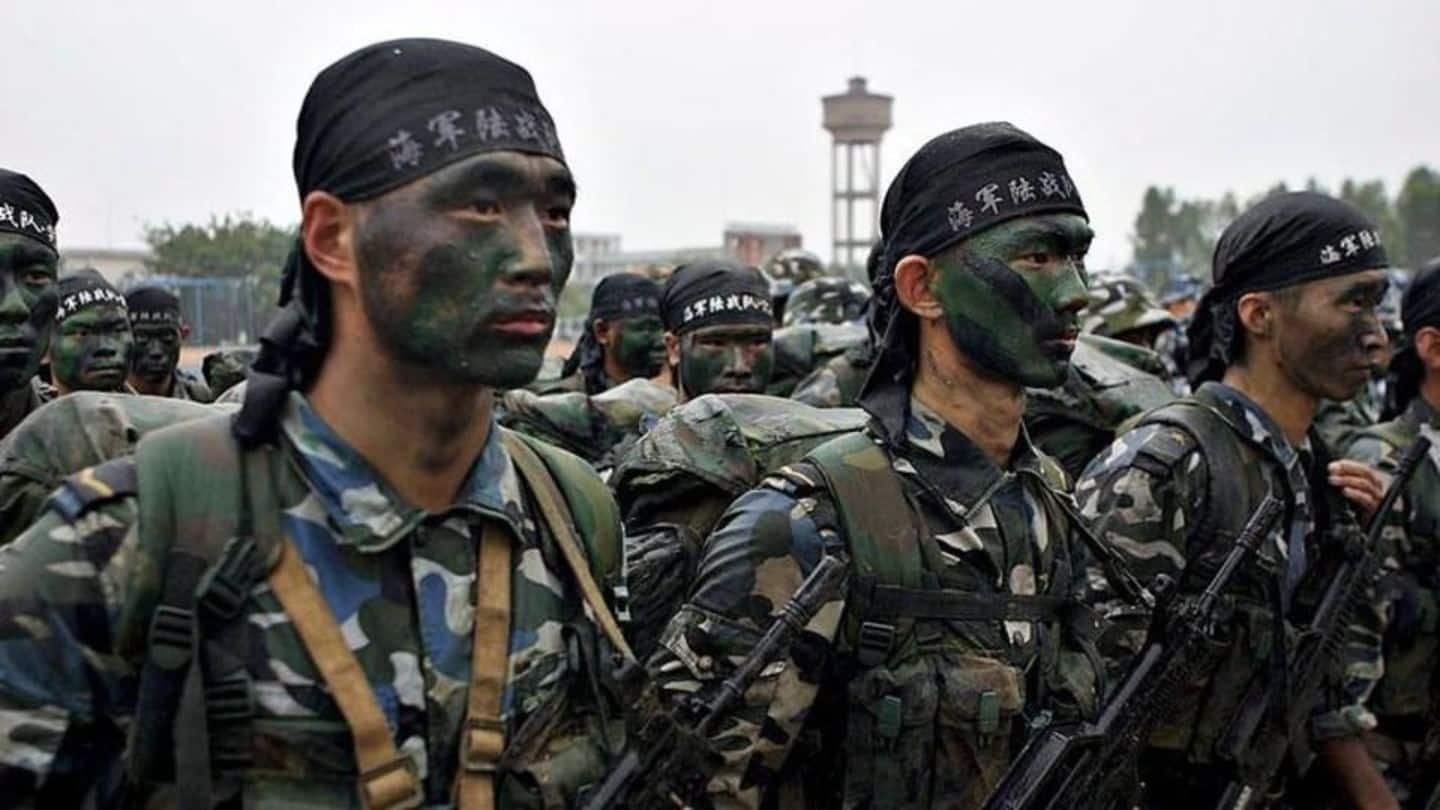
Bhutan discusses PLA activity near Doklam with Beijing
What's the story
Despite ending the Doklam standoff, China has reportedly increased its troop presence close to the Sikkim-Bhutan-Tibet tri-junction.
Recent reports have indicated that Bhutan spoke to China about the situation exactly a month after the conclusion of the standoff.
The matter was discussed in the context of Bhutan-China border disputes.
This is happening as Beijing grows increasingly uncomfortable with New Delhi's closeness to Bhutan.
Here's more.
Context
Tensed 75-day Doklam standoff gets resolved
Indian and Chinese troops were engaged in a tensed 75-day standoff in Doklam, an area situated at the Sikkim-Bhutan-Tibet tri-junction.
Both countries recently arrived at an understanding on mutual disengagement of troops from Doklam.
Meeting on the sidelines of the recently concluded BRICS summit, PM Narendra Modi and Chinese President Xi Jinping further charted a way forward for peaceful relations.
06 Oct 2017
China increases troop presence, widens road near Doklam standoff site
Reports on October 6 indicated that China continues to maintain a troop presence in an area close to the site of the Doklam standoff with India.
Beijing has also started upgrading and widening an existing motorable road located 10 km away from the standoff site.
China's actions are likely to escalate the current situation.
So far, India hasn't objected to China's latest road construction.
Information
What was discussed at the meeting?
The meeting was conducted on 27 September, exactly a month after the conclusion of the Doklam standoff. Sources reveal that Bhutan's ambassador to India Vetsop Namgyel discussed Chinese activities near Doklam in the meeting. Both sides also discussed holding another round of border talks.
Bhutan's position
What has Bhutan's position been on the Doklam standoff?
Several reports have indicated that Indian troops intervened in Doklam on Bhutan's behalf.
However, as a smaller country embroiled in a standoff between regional powers, Thimphu has largely stayed quiet on the matter.
It slyly expressed support toward India while welcoming the decision to conclude the standoff.
Thimphu hoped for reinstating status quo along Chinese, Indian and Bhutanese borders in accordance with "existing agreements."
China's goals
What does China want from Bhutan?
China claims about 681 sq. km of Bhutanese territory, including the Doklam plateau as its own.
Through controlling Doklam, China believes that it can render the Siliguri corridor, the only supply/transport line that feeds Indian troops in the northeast, vulnerable.
Thimphu has largely objected to Beijing's territorial claims as it does not purportedly want China to acquire a strategically superior position in the region.
Analysis
Why India should keep Bhutan happy?
Thimphu's stance on the Doklam standoff has largely been pro-India. It seems driven at least partly by New Delhi's interests.
However, it is imperative that India continues to maintain harmonious ties with Bhutan, especially as China tries to wean it away from India's sphere of influence.
Alternatively, if Bhutan makes territorial concessions to China, it leaves India's eastern front significantly vulnerable to Chinese attack.